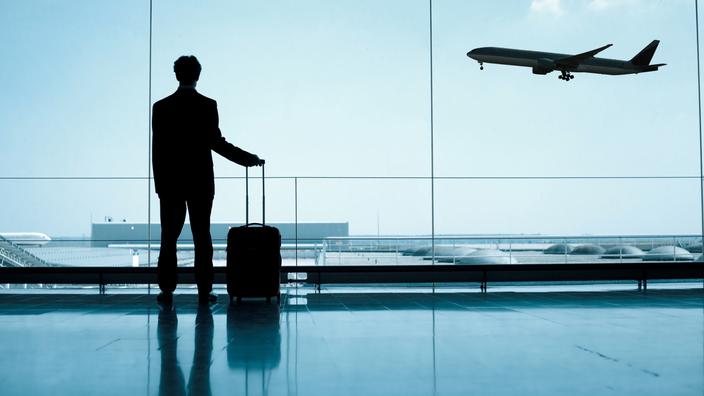
Can “Travel Bubbles” Save Tourism?
Like New Zealand and Australia, several countries have entered into bilateral agreements to allow their citizens to travel without restrictions. Do these health corridors herald the resumption of travel?
Traveling without any restrictions from one country to another: nothing more than a simple habit of just over a year ago. Today, an exception is reserved for a few distinct countries. The latest example? On Tuesday, April 6, New Zealand agreed to a “bubble” principle with Australia whereby citizens of the two countries can travel without quarantine. This procedure should be achieved in mid-April.
Allowing citizens of countries with similar health status to travel without restrictions is the principle of “travel bubbles.” The first was created last May by the three Baltic states, when most of Europe’s internal borders were still closed. Citizens of Estonia, Latvia, and Lithuania can then move freely between the three countries without having to undergo compulsory quarantine for any foreign visitor.
See also – Covid-19: In Taiwan, tourists travel to Palau in ‘first travel bubble’
Read also:Iceland opens its arms wide to the fortified tourists
“We welcome them again.”
Since then, many countries have taken the lead in 2021, seizing the opportunity to revive a faltering tourism industry. Especially since these are often popular destinations where tourism occupies an important part of the economy. For most of them, the epidemic is being controlled relatively well. New Zealand, for example, has only recorded 26 Covid-19-related deaths since the start of the pandemic in early 2020. With fewer than a thousand deaths for a population of 25 million, Australia has also praised its very good management.
“I can confirm that trips without quarantine will start in less than two weeks, April 18 at 11:59”New Zealand Prime Minister Jacinda Ardern announced, endorsed by her Australian counterpart Scott Morrison. “We welcome them again, in the same way New Zealanders will welcome Australians.”, He reacted. For its part, Australia partially opened its territories to New Zealanders six months ago, which allowed them to travel to certain states without the need for quarantine monitoring.
This bubble – envisaged since the start of the pandemic – should open just over a year after the South Pacific archipelago closed its borders due to the pandemic. “Between these two countries, the travel bubble is closely related: they are two islands that are not central to international flows.”Already confirmed in January, Paul Ciamparetto, professor at Montpellier Business School who specializes in air transport.
Also see – New Zealand announces a bubble for free travel with Australia
Also in the Pacific, Taiwan and the Palau Archipelago opened their bubbles on April 1, again in hopes of boosting the tourism industry hit hard by the epidemic. “Sun rays” For the head of Palau, Surangel Whips. The head of state said that experts had calculated that the risk of the Coronavirus reaching his country through this bubble was one in four million.
Agreements are difficult to implement
But in the time of Covid-19, creating free movement zones wasn’t easy. The UK and US have tried the idea, but to no avail. A planned 2020 bubble between Singapore and Hong Kong has been postponed indefinitely due to a new wave of pollution in the former British colony.
Recently, many Asian countries have tried to strike an agreement with China to ensure the recovery of tourism according to them The reverberation , Like Thailand or Malaysia. But Beijing is hesitant at the moment.
Once created, these bubbles remain fragile. They generally do not tolerate a recovery in the epidemic, such as the bubble in the Baltic countries in May 2020. Work continued until last fall when the health situation in the region deteriorated. Today, the device is at a standstill.
In Europe, bubbles for hermetic travelers
Many countries in the ancient continent have embraced this type of initiative. The planned devices in Europe, however, only pertain to immune travelers. At the beginning of April, the archipelago of Malta, which, like Palau, is striving to revive its tourism industry (which accounts for 15% of GDP), announced that it would welcome British travelers who had received two doses of the vaccine from June 1.
Earlier, Athens concluded an agreement similar to a “travel bubble”. The agreement signed on February 8th between Greece and Israel allows citizens who have been vaccinated against Covid-19 in these two countries to travel freely for each other. “ Israel is a very important gain for Greece and if 70% of the Israeli population is vaccinated at the end of March, it will be easier to gradually start opening up to Israelis.Prime Minister Kyriakos Mitsotakis justified. On February 14, it was Cyprus’ turn to sign a similar agreement with the Jewish state.
For its part, France supports the popularization of health certificates to boost tourism. However, an agreement of this kind with a non-European country is not impossible. This is “Conceivable in the medium or long term” About Jean-Pierre Maas, President of Travel Companies. “We can envision this with countries experiencing large tourist inflows in the summer, like Tunisia Or Israel. But it is possible that this means that the European Union will accept it, and so far there is no government statement in this sense. “
Daniel Dalton, president of the British Chamber of Commerce and Industry in Brussels, agrees. “Hopefully, such an arrangement will be made with France, which is not only a huge tourist destination, but also a gateway to the rest of Europe for many travelers from the UK.Before Tempering: It will depend on infection rates in France, and at the moment, the situation in France may not be good enough to guarantee safe travel routes.s.”

“Organizer. Social media geek. General communicator. Bacon scholar. Proud pop culture trailblazer.”
